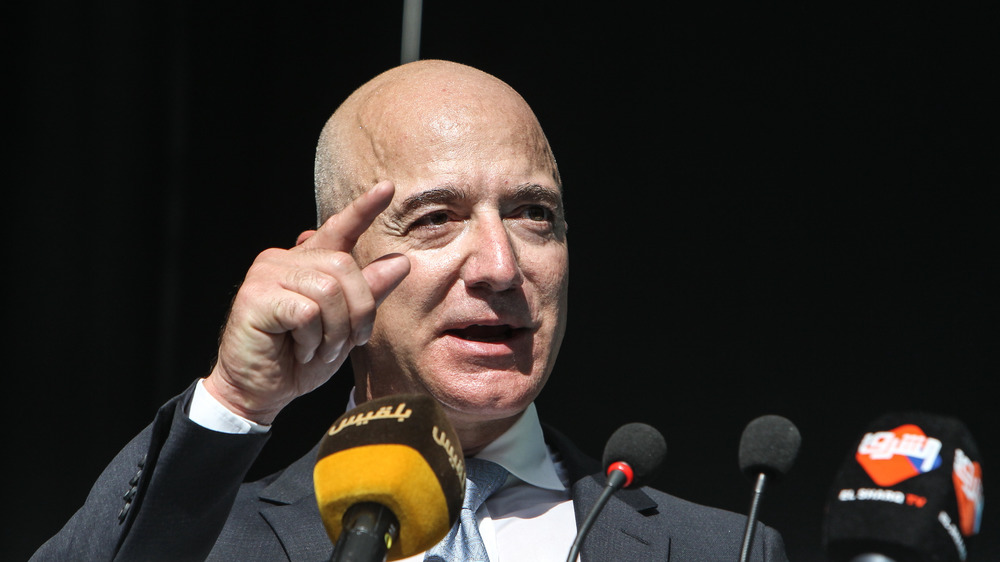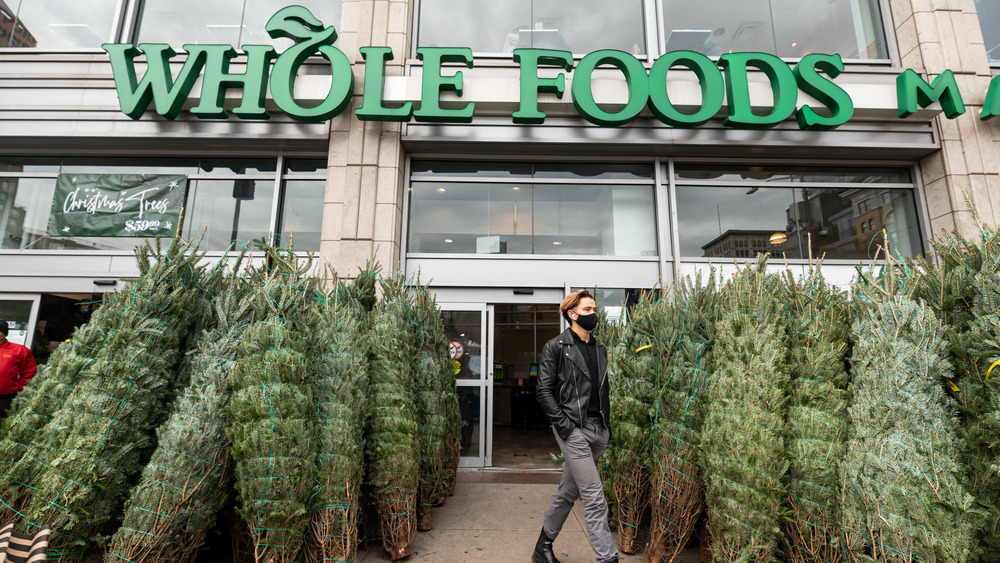This Is What The CEO Of Whole Foods Says It's Like To Work For Jeff Bezos
"It hasn't been as big a switch as you'd think," John Mackey, CEO of Whole Foods, explained as an answer to Freakonomics Radio host Stephen J. Dubner's question about how it was working under his new boss Jeff Bezos. After all, he's "always had a boss" of some kind or other, such as the board of directors to whom he reported when Whole Foods was independent. As opposed to being "like a god," Mackey strove to be a "servant leader," a leader who always put the interest of the company and its stakeholders first.
So, the fact that it was Jeff Bezos to whom he reported changed very little in his day to day activities. Reporting to Amazon, however, was a different matter. With Amazon, Whole Foods had to change, a process which Mackey likened to marriage: "I always use this analogy: when you get married, do you change? ... And the answer is, 'duh.' If you don't change, you're going to get a divorce."
Interestingly enough, Mackey used a similar theme when describing what it was like to discuss the purchase of Whole Foods with Bezos, as The Street reported. "You know when you fall in love you have what I call 'the conversation,'" Mackey raved. "You stay up all night and talk; and it's like oh my god, it's amazing, she's the one. That's how we experienced Amazon the first time we met them." So, if we take Mackey at his word, it seems that the relationship has been positive.
The workers may feel differently
The rosy view Mackey has of the partnership is probably not reflected by the Whole Foods workers who found themselves under Amazon's leadership. Just taking the latest grumblings, Whole Foods changed its break policy in January of this year, reducing the 15-minute paid break by 5 minutes, as Eater covered. This was due to an attempt to make a single policy for all stores, which ensured they offered 10-minute breaks. In another blow to employees, Business Insider brought to light in 2019 that the part-time workers at Whole Foods would see their medical benefits cut.
Even in 2018, the year after the acquisition, workers were worried about their future at an Amazon-owned Whole Foods. "They want us to become robots," one New England-based employee told The Guardian when describing the order-to-shelf system. "That's where they are going, they want to set it up so they don't have to pay someone $15 an hour who knows all about the food, they can pay someone $10 an hour to do these small tasks and timed duties."
While Mackey, as CEO of Whole Foods, may happily undergo changes to ensure his partnership with Jeff Bezos works, it doesn't seem clear how Amazon is changing for the sake of the workers now toiling for them.

